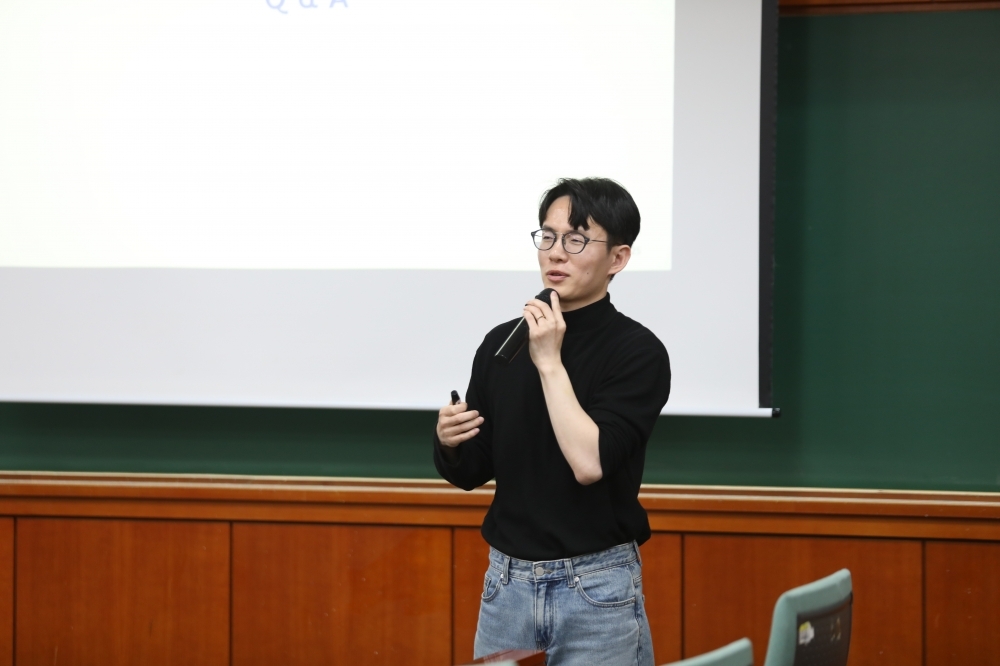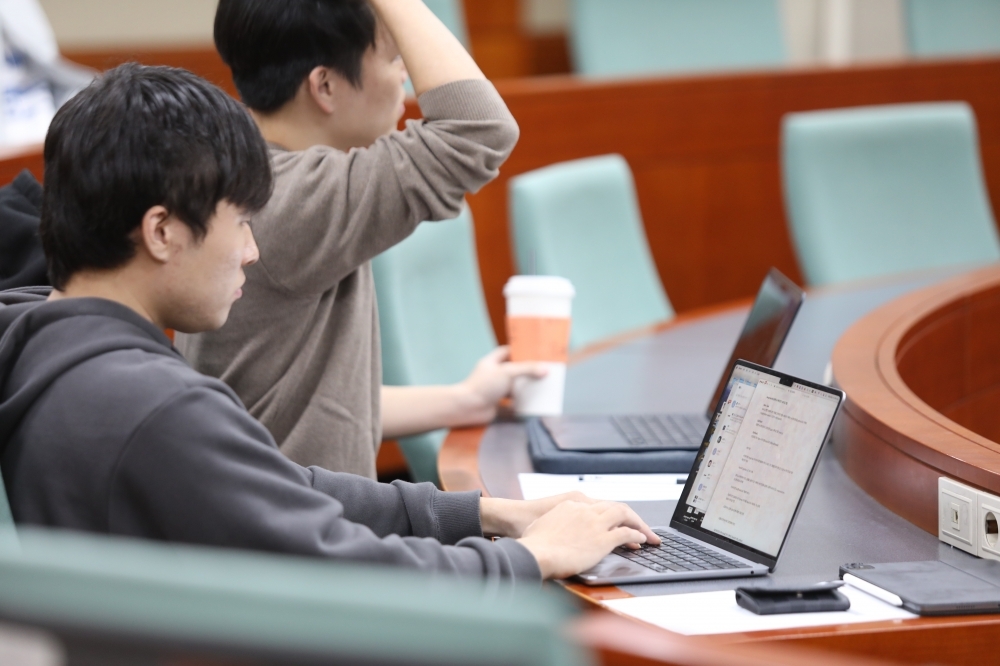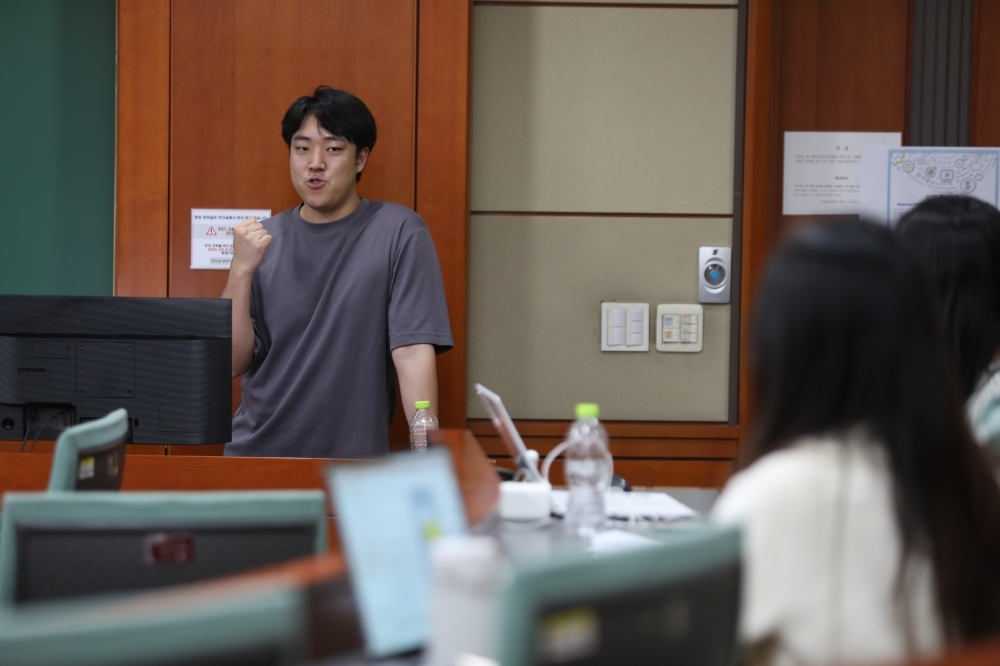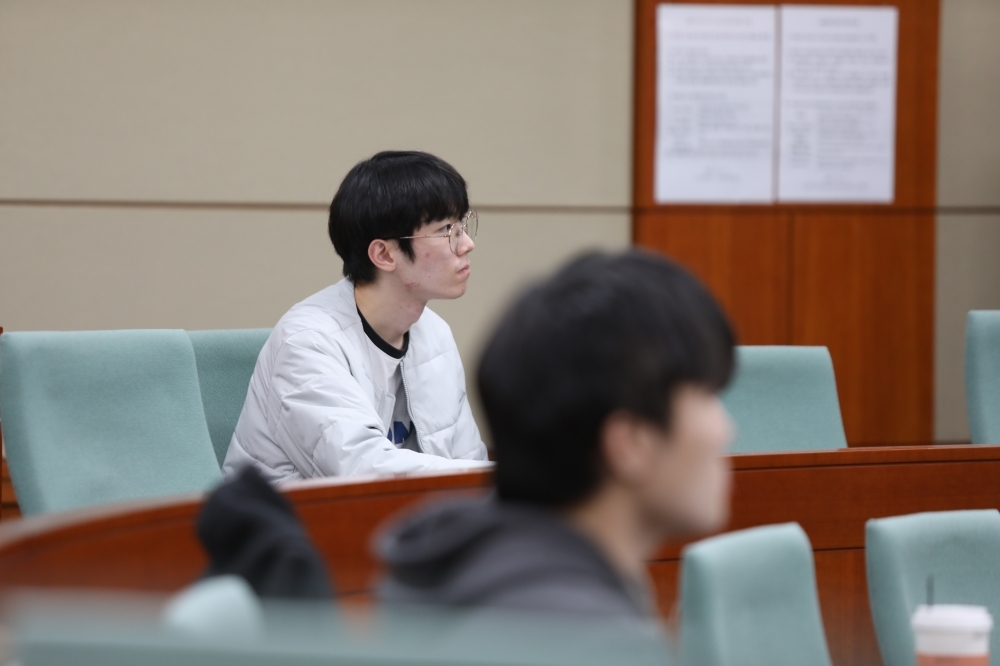News
KUBS News
BA Alumni Share Practical Knowledge on Using Business Analytics in the Workplace… DTB Colloquium
2024.11.07 Views 2420 국제실
BA Alumni Share Practical Knowledge on Using Business Analytics in the Workplace… DTB Colloquium
On October 30, the Center for Digital Transformation & Business (CDTB) at Korea University Business School hosted a ‘DTB Colloquium’ at LG-POSCO Hall. The event featured two sessions led by BA alumni, focusing on practical cases of Business Analytics (BA) knowledge application in professional fields."
The first session featured Kunsu Park, a graduate from the fourth BA cohort and a member of SK Siltron’s HR2 Team, who shared his experience applying data analysis techniques in human resources (HR) to support corporate decision-making.

Park explained HR data analysis through BA in four main stages: Status Reporting, Advanced Reporting, Issue Resolution, and Predictive Analysis. He outlined that after establishing an understanding of the current status, analysis progresses to advanced reporting to address various HR issues. Issue resolution then involves targeted analyses to solve specific problems, while predictive analysis focuses on supporting decision-making processes. However, Park noted that 'most domestic companies are still only at the status reporting stage, and it is rare to see cases advancing to higher-level analyses or predictive stages.’
He also presented a case study analyzing employee dissatisfaction and needs using review data from Blind, an anonymous workplace community. He explained, 'Blind allows employees to leave honest, anonymous reviews of their companies, making it possible to analyze genuine opinions.' By examining review data from 2020 to 2024 for companies in the semiconductor and battery sectors, including Samsung Electronics, SK Hynix, and LG Energy Solution, he identified key factors contributing to employee dissatisfaction.
Park emphasized the importance of using data to understand employee needs as a foundation for corporate decision-making, underscoring that feedback-based HR decisions are essential. He explained that BA-driven analysis could 'serve as a way to reflect employee opinions,' though he cautioned that 'anonymous review data has limitations when used as a predictive source and requires more thorough validation.' His presentation illustrated the practical applications of BA in HR and suggested ways corporate decision-making can evolve through data-driven insights.

The second session featured Sungjae Yoon, an AI Consultant at LG Management Research Institute, who discussed 'AI-Based Industrial Trend Analysis and Relevant Answer Generation (RAG) Technology Applications.' A graduate of the third BA cohort, Yoon is currently addressing a variety of business challenges through AI-driven consulting. As the think tank of LG Group, LG Management Research Institute conducts research on major AI-related industrial trends and develops AI technologies to support these studies. Specifically, Yoon has been working on a project utilizing BERTopic and RAG models to analyze and summarize extensive research data and the latest trends, while also enhancing the intelligence of the internal research environment.

Yoon explained the use of BERTopic for trend analysis and text clustering, describing how he leverages this text clustering technique to analyze extensive report data by categorizing research topics and extracting keywords. 'By utilizing large language models (LLMs) for Korean embedding and topic naming, we overcame previous analysis limitations,' Yoon noted.
This approach enables effective identification of changes in specific trends and a deeper understanding of relevant companies. For example, when analyzing trends related to a prominent company like NVIDIA, meaningful insights are extracted, such as associations with Microsoft or OpenAI.
Yoon emphasized that "AI-based technologies are essential for uncovering valuable insights from massive datasets and enhancing research efficiency." He concluded by highlighting that “various AI technologies, including RAG, will play a pivotal role in transforming research environments in the future.”

The CDTB at the Business School organizes 4-5 DTB Colloquiums and Seminars annually to promote business strategies and trends related to digital transformation.


